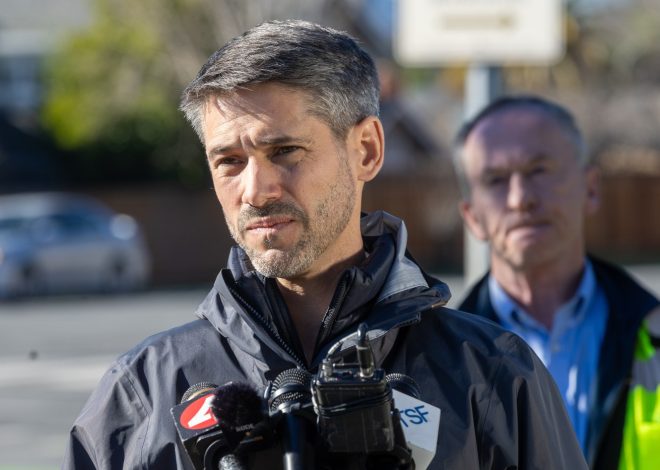
Alleged bias stalls review of police commission recommendations in Richmond
RICHMOND — Accusations of impropriety halted an attempt by Richmond Mayor Eduardo Martinez to establish a review body that would have taken a deeper look at a collection of recommendations from the city’s Community Police Review Commission, a body facing its own accusations of bias.
Related Articles
Berkeley police officer video of April shooting released but details missing
Baton-wielding California cop disciplined, could be stripped of badge
Procedures for Sheriff Corpus removal approved with some amendments
Expert: Antioch Police Department updates policies to align with national standards
Ex-Antioch cop sent to house arrest after steroid distribution conviction
Over a period of several months, Richmond’s Community Police Review Commission, a nine-member civilian oversight body formed in 1984, has developed a list of 13 recommendations meant to strengthen transparency and accountability among police officers.
Because some recommendations require a deeper legal review and negotiations, City Attorney Dave Aleshire said staff thought forming an ad hoc committee to review the proposals, an issue the council considered during its meeting Tuesday, would help expedite and simplify the process for the council and staff.
“The items contain a range of subjects. Some of the subjects I think would be pretty noncontroversial,” Aleshire said. “Some of the recommendations could lead to a larger case load.”
Among the recommendations that will need greater consideration was an expansion of the time period the public has to file a complaint against a police officer, greater authority for the commission to conduct investigations without a complaint being filed and a change in the evidence standard that would need to be met to sustain a complaint from “clear and convincing” to a “preponderance of the evidence,” Aleshire said.
Some community members, including Community Police Review Commission Chair Carmen Martinez and Andrew Melendez with the city’s Community Crisis Response Program Advisory Board, encouraged the council to move forward with the ad hoc committee.
Others, including fellow Community Police Review Commissioner Oscar Garcia and Richmond Police Officers Association President Ben Therriault, raised concerns. While Garcia said his opinions are not taken seriously by a commission pushing “not well informed changes,” Therriault said the recommendations are coming from a body with an anti-police bias.
Meanwhile, Police Chief Bisa French said she supported the formation of the ad hoc committee but was concerned that the already understaffed department may soon lose officers given the perception of bias among the commission, which recently sustained a complaint against an officer despite former Commission Investigator Jerry Threet finding no evidence of violations.
“There are a lot of concerns. I’m more concerned about how this is affecting my department,” French said. “I hope that we all can all come together with an open mind to put forward recommendations that will benefit our community as well as our department.”
Threet resigned in September 2024 after citing “a steady erosion in adherence to evidence based, objective” reviews by the commission of community complaints, according to his resignation letter.
“Put plainly, I no longer believe the commission can be relied upon to reach a valid finding on allegations of officer misconduct based on an objective, thorough, and unbiased view of the totality of the investigative evidence,” read Threet’s resignation letter, which also stated the California State Bar Rules of Professional Conduct that says attorneys should resign from positions if that role would assist in violating the law.
Threet called for the commission to receive more training, a proposal also among the 13 recommendations, Aleshire noted during the Tuesday meeting. But Councilmembers Soheila Bana and Jamelia Brown voiced strong concerns with an ad hoc being formed to consider any of the commission’s recommendations without the city having investigated Threet’s claims.
“It is good to have a community police review commission that works ethically, lawfully and builds trust,” Bana said. “Those are the things we expect from our police force. … Similarly we expect the same thing from the CPRC.”
Bana and Brown also questioned the configuration of the ad hoc committee. In addition to placing French, Aleshire and a representative from the commission on the ad hoc committee, Martinez proposed appointing himself and Councilmembers Claudia Jimenez and Sue Wilson to the body.
Bana noted Commission Chair Carmen Martinez was Jimenez’s campaign manager, which Jimenez confirmed in a text message Wednesday. It was also noted that Wilson’s husband, Daniel Lawson, serves on the Community Police Review Commission
Bana said the councilmembers had “too many connections” to ethically be appointed to the ad hoc committee and said a variety of viewpoints should be represented on the body if formed.
Meanwhile, Brown said the appointment recommendations were a “red flag.” She also noted the mayor’s recommendation did not name a specific person on the commission to serve on the ad hoc committee, creating more uncertainty on the layout of the body, and that justification for forming the ad hoc committee or selecting the members was unclear.
“The statement of issue reads less about a response to a problem and more like an attempt to control the outcome before it reaches the council and ultimately the public,” said Brown. “This is not a shortcut thing.”
When questioned on whether he should have recommended Wilson and Jimenez recuse themselves from the ad hoc committee, Aleshire said he would have said something if he saw any clear conflicts of interest.
Martinez took issue with the accusations of bias, noting couples can have diverging opinions. He asserted the issue was being politicized.
“This conversation has been peppered with a lot of assumptions, a lot of accusations and I can see that it is politicized otherwise people would not hear what they wanted to hear instead of what the person said,” Martinez said. “I don’t know how someone could assume I’m biased, that I’m incapable of being impartial. I’m insulted by that accusation.”
Jimenez and Wilson also defended themselves by noting Jimenez is the commission liaison and Wilson has a labor negotiation background, which they say is why they were asked by the mayor to serve on the body.
Regardless of whether an ad hoc committee reviews the issue, Wilson noted the council would still have the final say over what’s approved.
“It’s a city council decision. It’s not an ad hoc decision. Whatever passes … it has to be a majority of the council,” Wilson said. “Nobody is doing an end-run around city council on this, which seems to be (Bana’s) implication, which I just think is factually untrue.”
Ultimately, the council’s vote on whether to form the ad hoc committee was split 3-3 with Jimenez, Wilson and Martinez in support. Brown, Bana and Vice Mayor Cesar Zepeda opposed. Councilmember Doria Robinson was absent.
The issue of process became the deciding factor on the matter with Zepeda, Brown and Bana all saying they’d prefer for the council review the commission’s recommendations as a full body before creating an ad hoc committee to dive deeper into any issues.
“I haven’t seen all 13 recommendations but that’s a lot,” Zepeda said. “I would like to see them before the ad hoc committee starts drilling down into each one of them that may or may not be something we want to focus on.”


